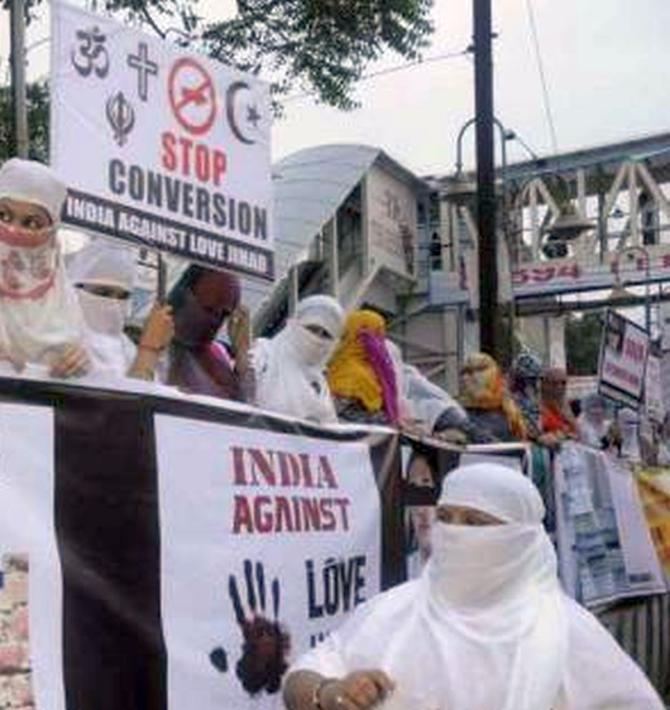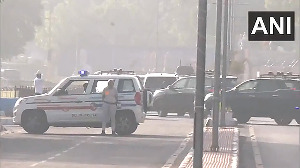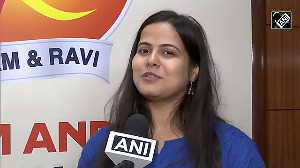The Himachal Pradesh Assembly approved a bill on Saturday to make the state's 2019 anti-conversion law more stringent by forbidding a convert from availing ''any benefit" of parents' religion or caste and enhancing the maximum punishment to 10 years imprisonment.

Passed by a voice vote, the Himachal Pradesh Freedom of Religion (Amendment) Bill, 2022, also bans "mass conversion" - described as two or more people converting at the same time - through force or allurement .
The bill proposes to increase the punishment for illegal conversions to a maximum of 10 years from seven years.
The Bharatiya Janata Party government introduced the bill on Friday for amending the Himachal Pradesh Freedom of Religion Act, 2019, which came into force barely 18 months ago.
Objecting to certain provisions, Congress legislator Sukhvinder Singh Sukhu and Communist Party of India-Marxist legislator Rakesh Singha demanded that the bill be sent to a select committee for examination.
The bill will become law after the assent of the governor.
Congress legislator Sukhu had reservations about the provisions that barred a convert from taking any benefit of his parent religion or caste, but the government insisted that it is in line with the Constitution.
The Constitution (Scheduled Caste) Order, 1950, says no person who professes a religion different from Hindus, Sikhs or Buddhists shall be deemed to be a member of a Scheduled Caste.
The Congress legislator from Kinnaur, Jagat Singh Negi, said that even if the government makes the Act stringent, the conversion "will not stop until the mentality is changed.”
He claimed that depriving scheduled castes who convert to other religions of the benefit of reservation was against the spirit of the Constitution.
CPI-M legislator Rakesh Singha also demanded that the bill be referred to a select committee as the matter is under judicial scrutiny.
Replying to the objections, Parliamentary Affairs minister Suresh Bhardwaj said that the rights of the tribal people will not change.
He said under the bill, a self-declaration is required that the converted person will not take any benefit of his parents' religion.
Chief Minister Jai Ram Thakur stated that followers of some religions are focussing on tribal areas of the hill state to convert Scheduled Castes and his party was more conscious than others about protecting the rights of the SC community,
The 2019 anti-conversion bill was notified only on December 21, 2020, 15 months after it was passed in the state assembly. It had replaced the 2006 law brought by the Virbhadra Singh-led Congress government.
The words “and to the effect that he shall not take any benefit of his parent religion or caste after conversion" have been inserted after the words "fraudulent means"in section 7 (1) of the Principal Act.
It stipulates that the complaints made under the Act will be investigated by a police officer not below the rank of a sub-inspector.
The offences will now be tried by a sessions court.
The bill seeks to amend sections 2,4,7 and 13 and insert section 8A in the 2019 Act.
The maximum punishment under the bill is 10 years, up from seven in the 2019 Act and three in the old Himachal Pradesh Freedom of Religion Act, 2006.
The current law says no person or organisation violating its provisions will be allowed to accept a donation or contribution of any kind from within or outside the country.
The ruling BJP has been a vocal supporter of anti-conversion laws and many party-ruled states have introduced similar measures.
The 2019 Act prohibits conversion by misrepresentation, force, undue influence, coercion, inducement, marriage or any fraudulent means. Any marriage for the sole purpose of conversion is declared "null and void"under Section 5 of the Act.
This and many other provisions remain unchanged in the proposed amendment to the law, introduced in the House just months before the state goes to the polls.
The Himachal Pradesh law requires that anyone seeking to convert will give a month's notice to the district magistrate that they are changing their religion on their own. The provision in the 2019 Act figured in the 2006 law as well and was challenged in court.
The priest who performs a conversion ceremony will also give a month's notice. Those reconverting to their parent religion are exempted from this provision.
Chief Minister Thakur had said the 2019 Act did not have a provision to curb mass conversion. "Therefore, a provision to this effect is being made.”











 © 2025
© 2025